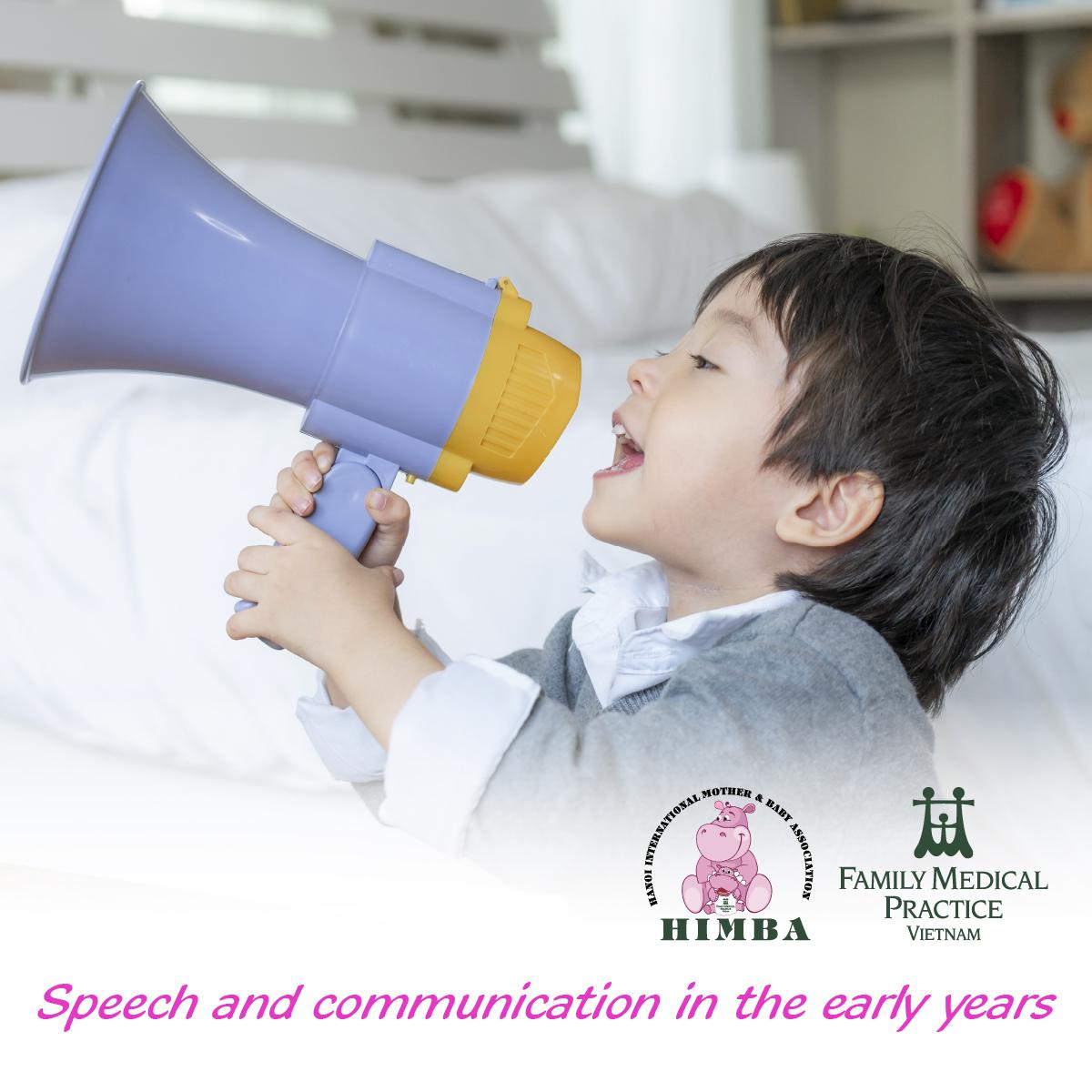[Development] Speech and communication in the early years

The importance of communication begins in the womb.
From six months of pregnancy, the baby's brain is developed enough to begin to remember, experience and learn. Your baby can also hear from six months which is why babies are comforted by the voice of their parents at birth.
During your pregnancy, it is great to talk to your baby. Also encourage the father or close others to talk to the baby. Play lullabies and music to your baby and once they are born, they will enjoy the sounds and find comfort in these sounds.
Please refer to our specific guidance on speech and communication from birth to one year. https://www.vietnammedicalpractice.com/hanoi/en/news/himba-development-speech-development-first-year
General milestones for speech are:
- Children say their first words by around 1 years old. 'Dada' 'Mama' etc - although general understanding will be before then.
- 18 months- children say about 18 words and understand a lot more.
- 24 months - children say about 50 words and understand between 200-500 words
- At 3 years - children will use about 300 words
- By 5, children use about 2,500 words
How can you support speech and communication development?
-Point to an object and use its name- build association between names and objects
-Encourage children to use new words - ask them choices, do you want some yoghurt or carrot sticks?
-Repetition - children need to hear words regularly before they can learn and say it properly- speak clearly and use the same words often.
-Turn off background noises - tv/radio will make it more difficult for children to hear words you use
-Build on a child's sentence - when your child says ' top on', reply with 'Yes, we shall put your top on now'.
-Use your childs name - this will help gain their attention and make it clear to focus on you and not a toy they are playing with.
-Read books to your child - discuss what you see, feel and point to objects and name them.
-Encourage them to meet other children -more interaction introduces them to more
Resources:
https://www.cdc.gov/ncbddd/childdevelopment/language-disorders.html
https://www.cdc.gov/ncbddd/actearly/milestones/index.html
https://www.asha.org/public/speech/development/
https://www.nhs.uk/conditions/pregnancy-and-baby/helping-your-childs-speech/
Author: Abigail Laurie Registered Midwife and Registered Specialist Public Health Nurse, United Kingdom.
 We use cookies on this website to enhance your user experience
We use cookies on this website to enhance your user experience